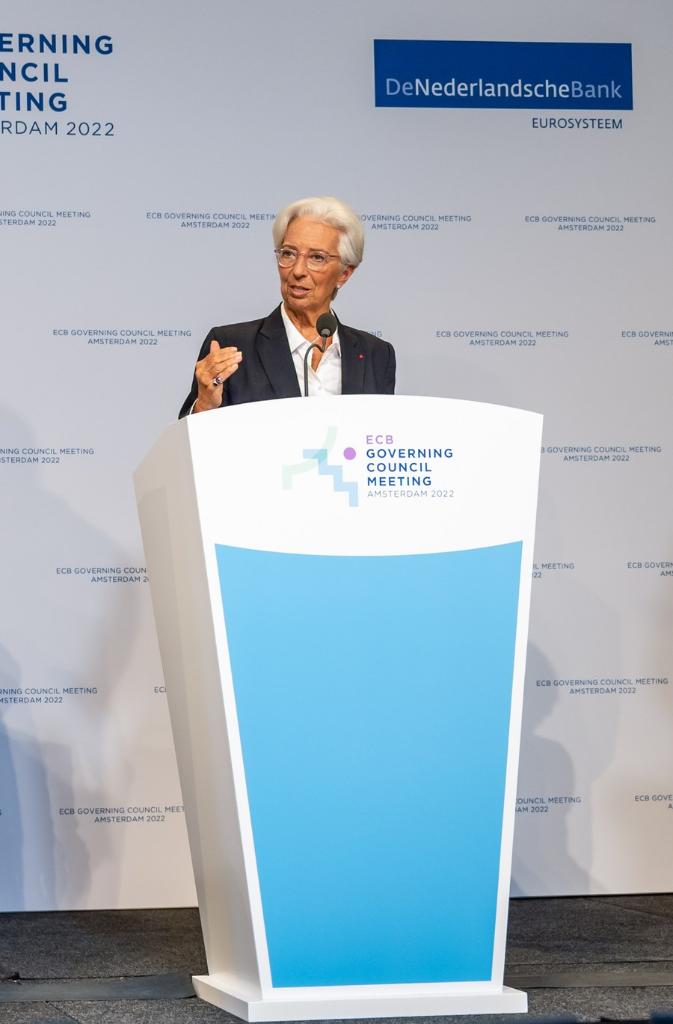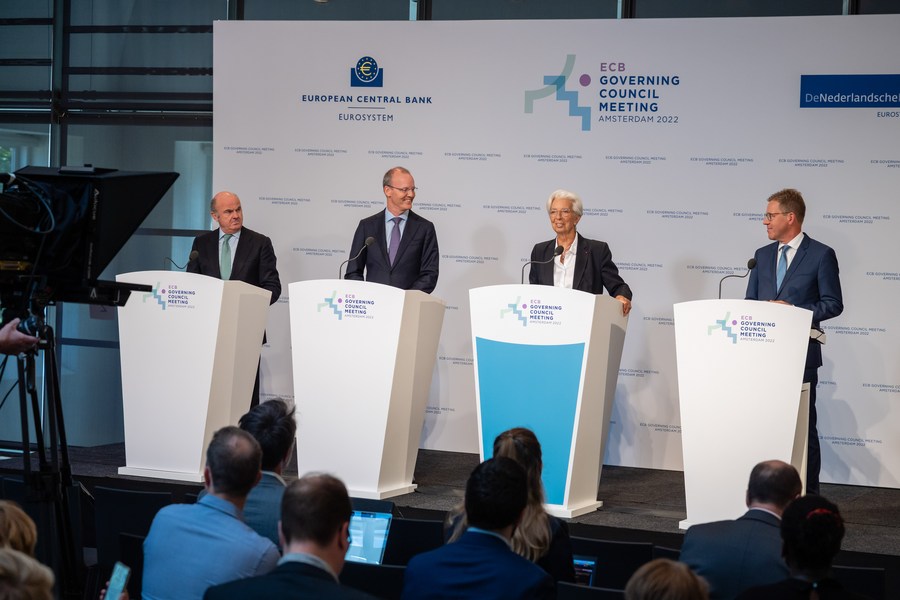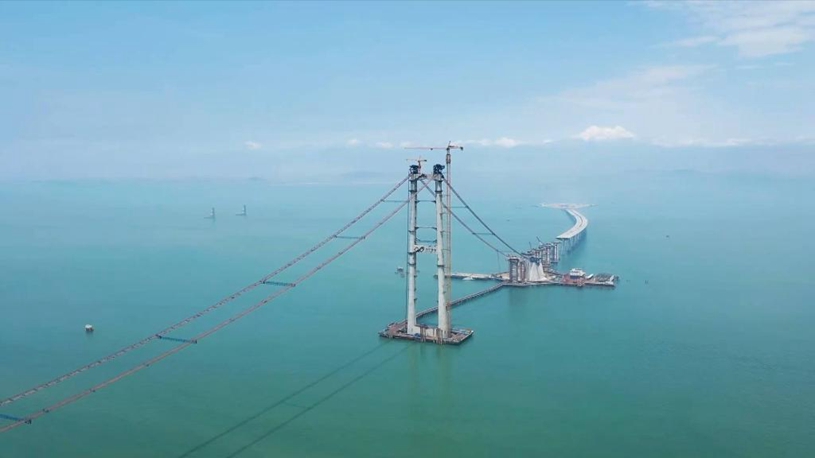
European Central Bank President Christine Lagarde speaks during a press conference in Amsterdam, the Netherlands, on June 9, 2022. (Dirk Claus/ECB/Handout via Xinhua)
-The European Central Bank announced Thursday to end net asset purchases under its asset purchase programme as of 1 July 2022.
-It intends to raise key interest rates by 25 basis points in July and continue to raise them in September.
FRANKFURT, June 11 (Xinhua) -- The European Central Bank (ECB) announced Thursday that its bond-buying program will end in June and is poised to raise interest rates in July.
The announcement marks a turnaround of its unconventional monetary policy characterized by securities purchase programs and negative interest rates, which have been going on for years.
QUANTITATIVE EASING ENDS
"The Governing Council decided to end net asset purchases under its asset purchase programme (APP) as of 1 July 2022," the ECB said in a statement released after a Governing Council meeting.
As part of a package of non-standard monetary policy measures initiated in mid-2014, which are widely referred to as Quantitative Easing (QE), the APP has been active for around eight years and the cumulative net purchases stood at 3,419 billion euros (about 3,625 billion U.S. dollars) at the end of May 2022.
The ECB left key interest rates unchanged but committed itself to two interest rate hikes in a surprise disclosure.
The central bank said it intends to raise key interest rates by 25 basis points in July and continue to raise them in September.
Plagued by long periods of low inflation in mid-2014, the ECB was one of the first major central banks in the world to bring key interest rates down to the negative territory in a bid to shore up inflation and step up lending to the real economy.

The European Central Bank (ECB) said on Thursday it will increase its key interest rates by 0.25 percentage points at its July monetary policy meeting. (Dirk Claus/ECB/Handout via Xinhua)
INFLATION BECOMES RED HOT
Inflation in the euro area has been hovering on historically high levels for months and has turned into an overriding concern for the ECB, which is mandated to keep prices stable in the 19-member block.
"High inflation is a major challenge for all of us. The Governing Council will make sure that inflation returns to its 2 percent target over the medium term," said the ECB statement on Thursday.
In its assessment about inflation, the ECB struck a grimmer tone. "But inflation pressures have broadened and intensified, with prices for many goods and services increasing strongly."
According to the statistical office of the EU, the annual inflation in the euro area hit a staggering high of 8.1 percent in May, up from 7.4 percent in April. Some members in the euro area even registered double-digit increases in their inflation in May.
Accordingly, the ECB has revised up its projections about inflation. The latest staff projections foresee annual inflation at 6.8 percent in 2022, 3.5 percent in 2023 and 2.1 percent in 2024.
ECONOMIC RECOVERY AT RISK
In its latest economic outlook released on Wednesday, the Organization for Economic Cooperation and Development (OECD) slashed its predictions for economic growth in the world to 3 percent. Due to factors including the conflict between Russia and Ukraine, the economy in the euro area is forecast to grow at 2.6 percent in 2022, according to the OECD.
Blaming the conflict, the ECB claimed that it is disrupting trade, pushing up energy and commodity prices and leading to shortages of materials.
"These factors will continue to weigh on confidence and dampen growth, especially in the near term," said the OECD.
The ECB also cut its projections for economic growth in the euro area to 2.8 percent in 2022 and 2.1 percent in 2023. The forecast for economic growth in 2024 has been revised up to 2.1 percent as the ECB is optimistic that economic growth will pick up once the conflict-incurred factors abate.
While the end of QE marks a step forward towards monetary policy normalization, the ECB, in a clear attempt to continue to support the economy, has decided to reinvest the principal payments from maturing securities purchased under the APP. ■












